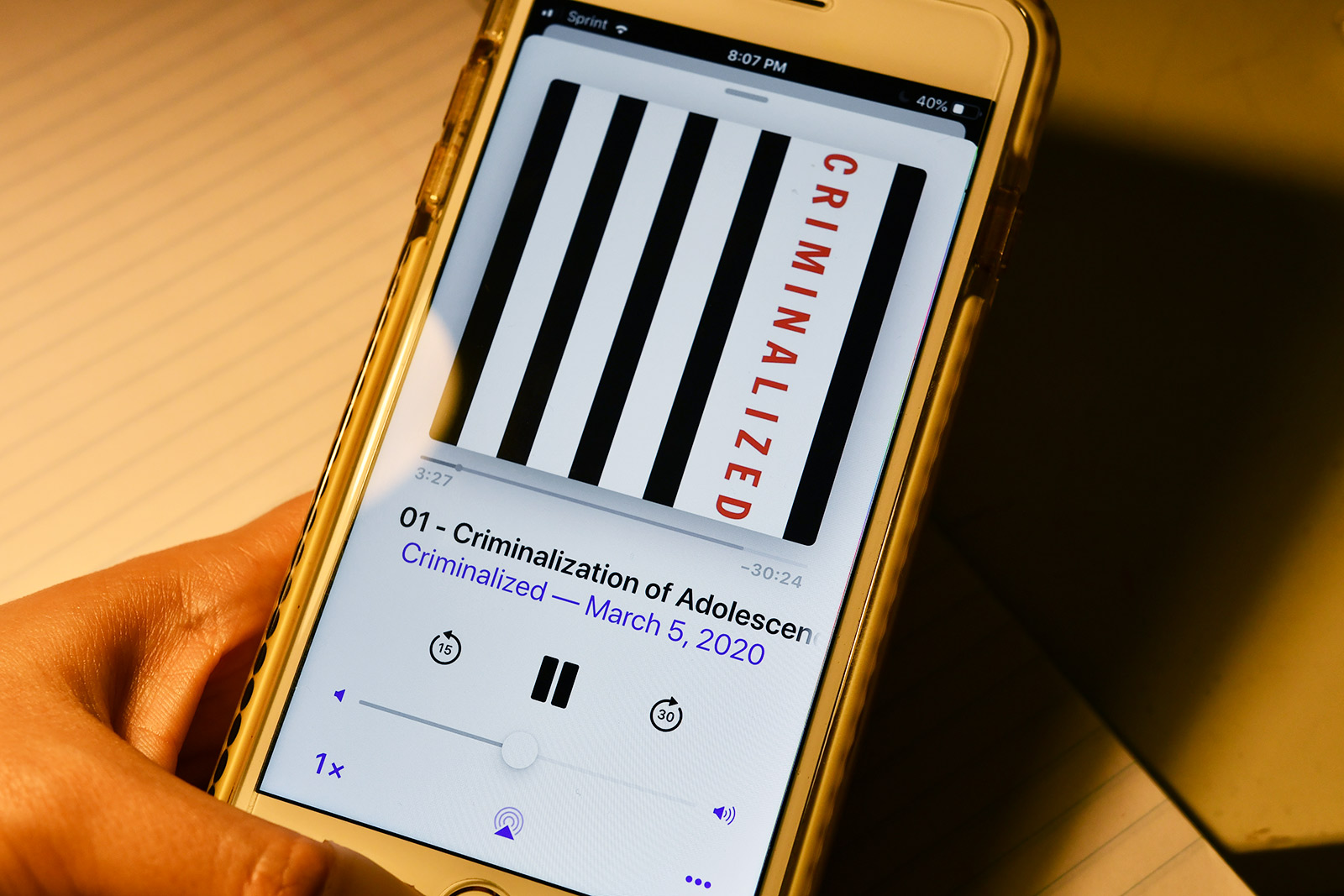In the United States, 2.3 million people are incarcerated as of 2018. On a global scale, America jails more citizens than any other country, according to the Prison Policy Initiative. Formerly incarcerated individuals who have finished serving time now face societal challenges, including homelessness and job loss, the PPI reports.
Sarika Ram, a junior in the College of Arts and Sciences, launched a podcast this month called “Criminalized,” where she discusses issues in the American criminal legal system with the formerly incarcerated, providing a platform to those who experienced prison first-hand.

“I became really immersed in direct service work, particularly working with incarcerated and formerly incarcerated people,” Ram said. “I heard such amazing stories of resilience and courage and love.”
Because convicted criminals often are not able to speak on criminal legal issues, Ram said she hopes “Criminalized” will become a way in which those individuals can express their thoughts and experiences.
“I really wanted my project to address this issue and highlight the stories of people who are formerly incarcerated through their own voices,” Ram said. “I thought the podcast was a particularly powerful platform to do that.”
In the first episode, which was released March 6, Ram spoke with Calvin Feliciano, who spent time in his youth jailed in the juvenile justice system in Boston. He is now a deputy political director for a local union that helped organize the “Jobs Not Jails” campaign, which aims to end mass incarceration.
During the conversation in the episode, entitled “Criminalization of Adolescence,” Ram focused on Feliciano’s personal experience growing up within the justice system and her mission to inspire understanding and communication with the public, she said.
“My goal is us to question what justice looks like in the United States and compare experiences,” Ram said, “looking at how different criminal justice stakeholders, like the police, played a role in our lives growing up.”
Ram and Feliciano discussed the transition from jail to school, the struggles of attending school in impoverished neighborhoods and the importance of providing support resources to prevent juvenile incarceration.
“Resources [were] nonexistent — bad schools, crappy buildings that look like prisons, cramped classes,” Feliciano said during the episode. “If you had 30 kids in a school, you probably had 21 books for those kids, so there would always be nine children that are somehow trying to learn reading [from] the same textbook with another kid.”
Blake Sims, a program director at Innovate@BU, assisted Ram in the making of her “Criminalized” podcast through the Innovation Pathway program at the BUild Lab. Sims wrote in an email that Ram’s podcast is a positive showcase of Boston University’s academic talent.
“[Ram’s] thoughtfulness, curiosity, and authentic care for formerly incarcerated men and women has truly been an inspiration for myself, our entire Innovate@BU team, and Terriers across the university,” Sims wrote.
Devam Dhawan, a senior in the College of Communication, created the soundtrack and musical effects for the podcast. Dhawan said the content of the program will resonate with listeners because of its authenticity and originality.
“I think a huge thing that’s talked about is the unjust criminalization of people who are convicted or are convicted felons for minor crimes,” Dhawan said.
By adding and mixing music to fit the conversation’s mood, Dhawan said he is able to emphasize the emotional depth of the dialogue between Ram and her guests.
Most formerly-incarcerated people, like Feliciano, were convicted for minor crimes, according to data from the Federal Bureau of Prisons on the crimes committed by the imprisoned. Minor crimes include misdemeanors, such as drug possession and other disorderly conduct.
Because of the podcast’s openness to conversation, Dhawan said everyone, regardless of their belief systems, should listen to the podcast.
“It’s so nice to hear a very unbiased viewpoint on the subject, and that’s why I think it’s so important for everybody to hear this podcast [because] there’s no political affiliation,” Dhawan said. “It’s strictly just a conversation between one of the kindest people I know and someone who is trying to tell their story.”
NOTE: Sarika Ram was an associate city editor at The Daily Free Press for the Spring 2018 semester. She was not involved in the reporting or editing of this story.

















































































































